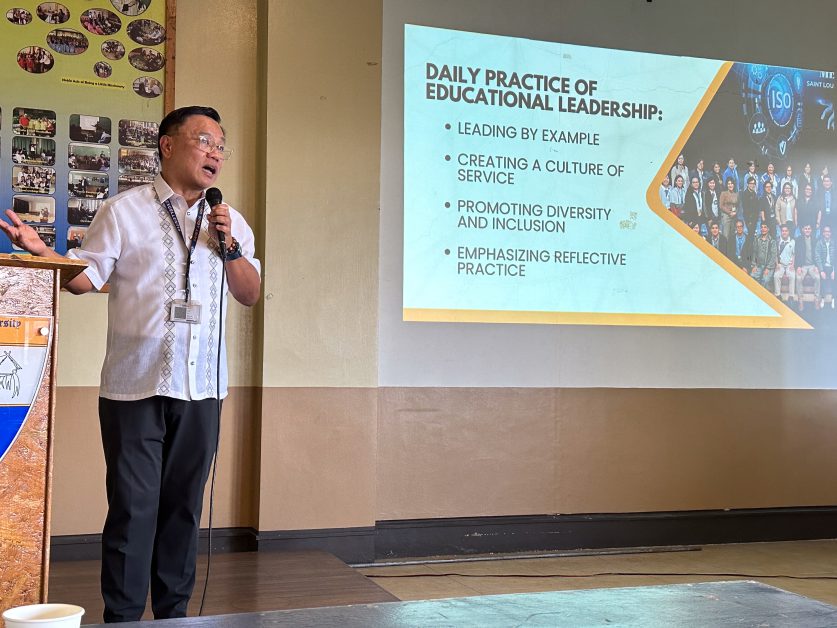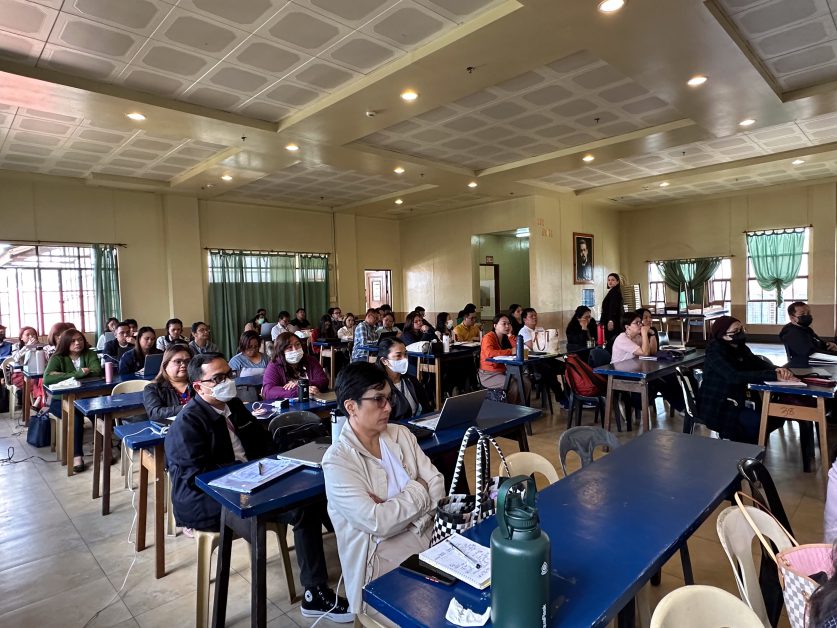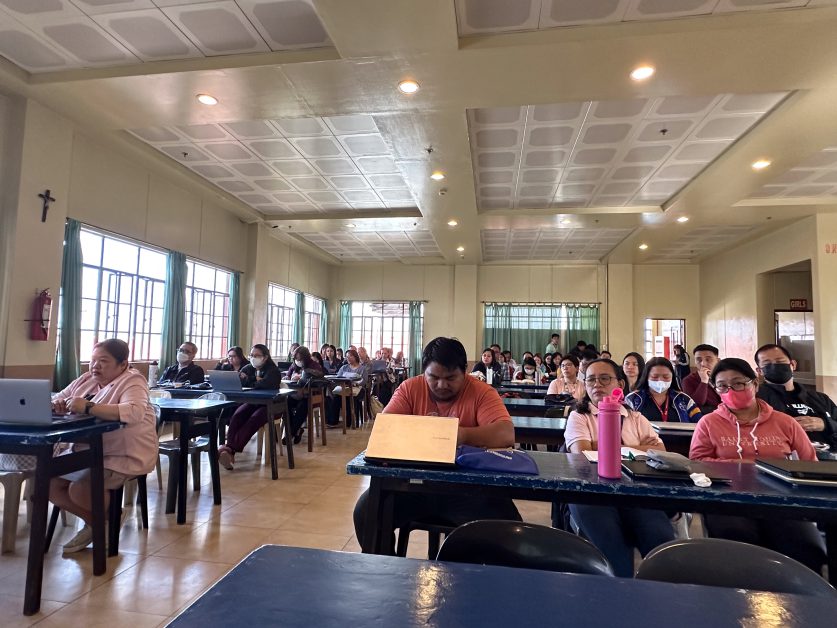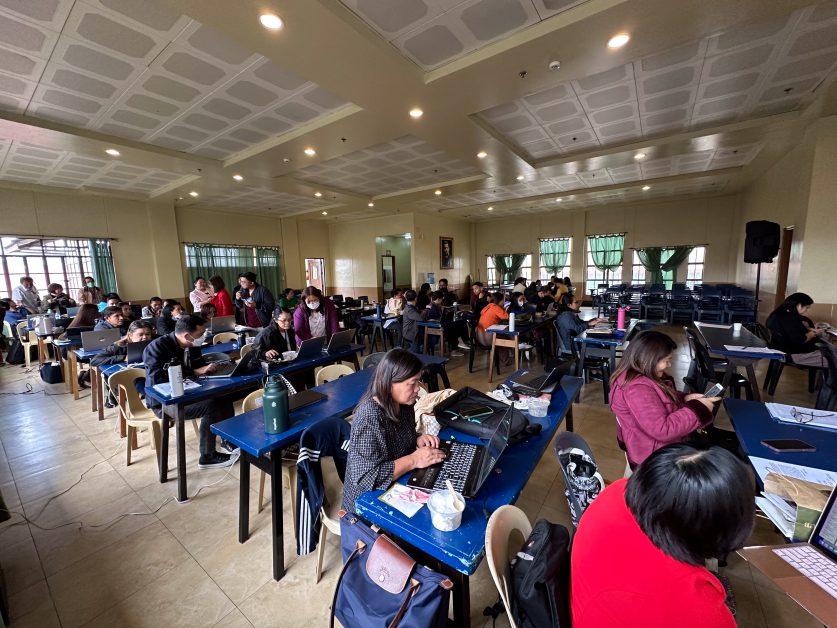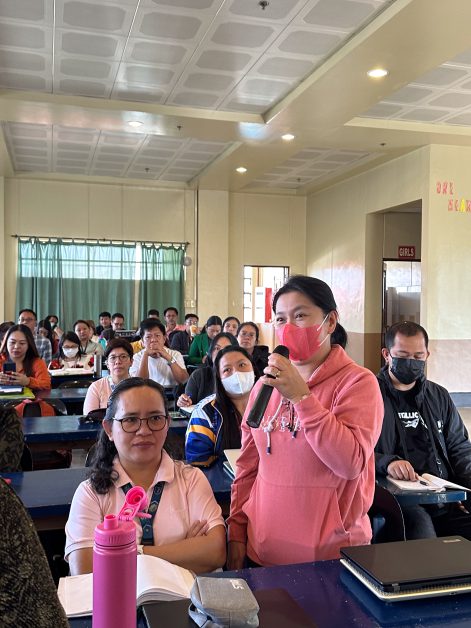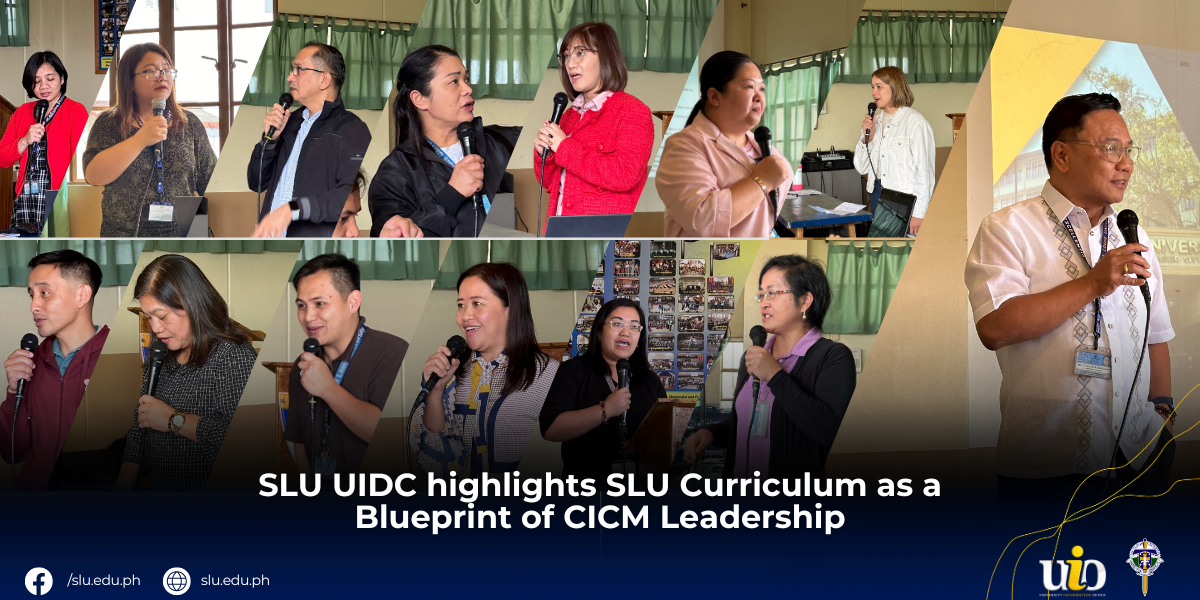Saint Louis University (SLU), through the University Instruction Development Committee (UIDC), conducted a curriculum summit titled “SLU Curriculum: A Blueprint of CICM Leadership” on 20 March 2024 at the William Brasseur Hall, BEdS Gonzaga Campus, Upper General Luna Road.
Through the summit, the deans, department heads, and graduate program coordinators of SLU went into depth on various topics including “Curriculum Quality Audit and the Language of the Standards,” “Evaluating the Syllabi Against the PRC Board Examination and other standards,” and “Interdepartmental Benchmarking of Best Practices.”
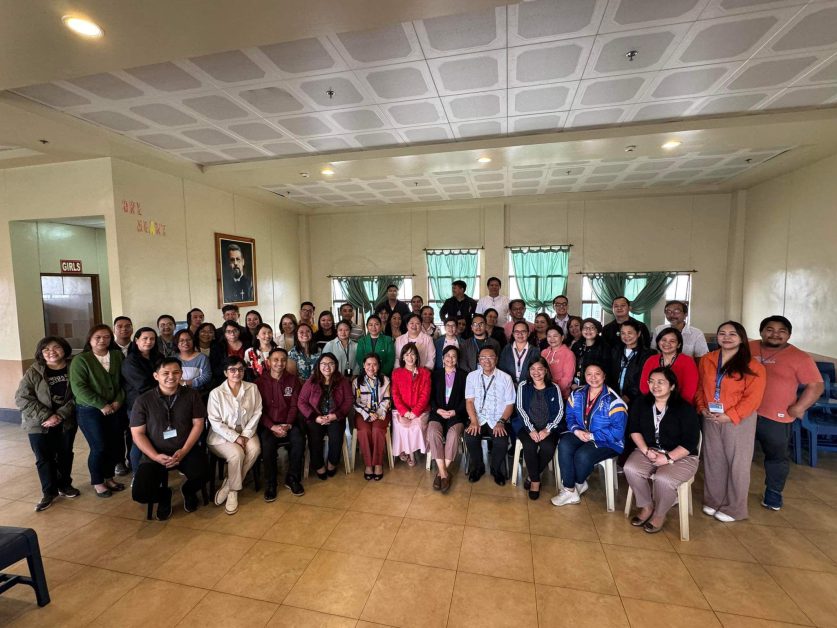
In his opening remarks, Engr. Jeffrey Des B. Binwag, UIDC Chair and Dean of the School of Engineering and Architecture (SEA), reminded the body that the processes, services, and accreditations should be centered toward the students to foster and enhance their curriculum and create more best practices intended for their future success and employability.
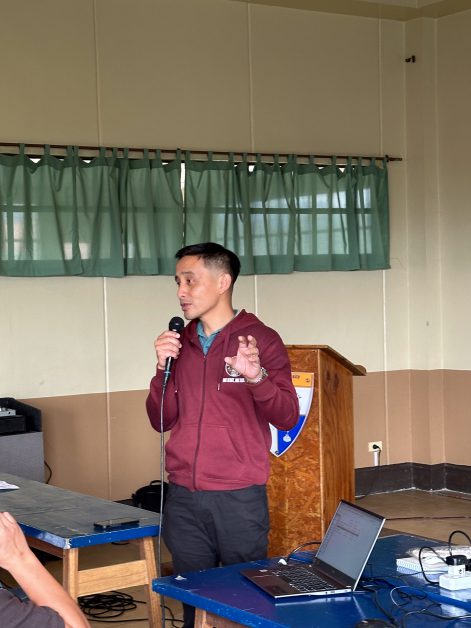
Rev. Fr. Gilbert B. Sales, CICM, SLU President, then gave an inspiring talk “Educational Leadership in the CICM Spirituality” emphasizing the integration of spirituality to have one vision and shared directions as leaders of the institution and as part of the CICM community. He said that as administrators envision leadership as a foundation in operating the Institution, it is essential to have administrative, academically-empowered, passionate, and active members in the management team.
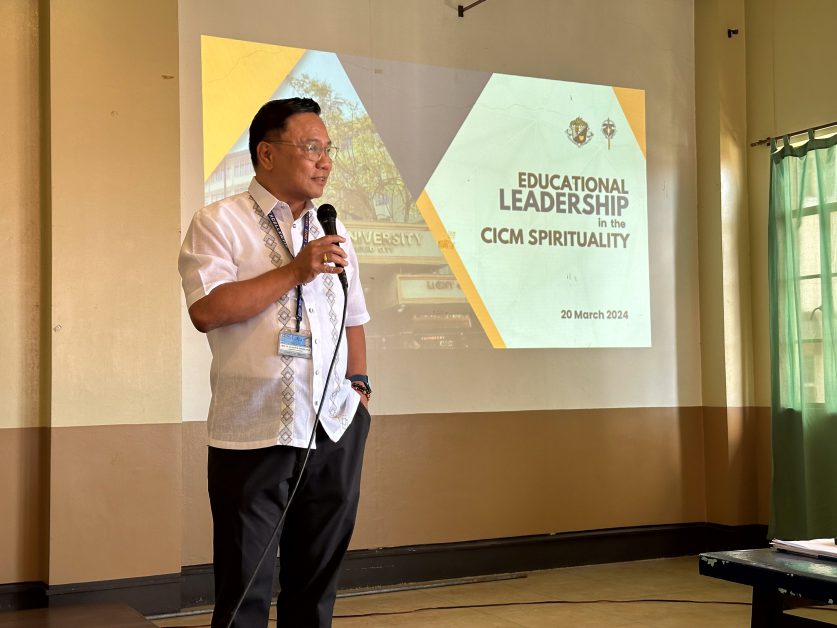
As the eyes, hands, and heart of SLU who inspire and prepare students for their future careers, Fr. Gilbert encouraged everyone to consistently demonstrate the relationship between CICM spirituality and SLU management, rooted within the University’s standards and actions. Discussing this further, he illustrated the 10 Missionary Priorities of the CICM: 1) Indigenous people; 2) Communities in Rural and Urban; 3) Educational Apostolate; 4) Campus Ministry; 5) Justice and Peace in Integrity of Creation; 6) Sectoral/Special Ministries; 7) Inter-religious Dialogue; 8) Initial Formation; 9) Ongoing Formation; 10) Vocation Animation.
Thereafter, Dr. Felina P. Espique, the Vice President for Academic Affairs of SLU, discussed “Curriculum Quality Audit and the Language of Standards”. Since teachers are facilitators of education, Dr. Espique stressed that there should be unity in the intended assessment and facilitated curriculum. It is essential to align curriculum enhancement with intended outcomes to prepare students for board examinations and employability in both local and global landscapes. She then presented the planning frameworks, program standards, and strategies on how to implement a Curriculum Quality Audit (CQA) as part of a facilitators’ responsibilities. She further emphasized the significance of the roles of program heads and coordinators as faculty members, data entry persons, program heads, course editors, and as faculty members that raises the standards for educational leaders who are empowered in curriculum mapping, auditing, and implementing educational goals and objectives.
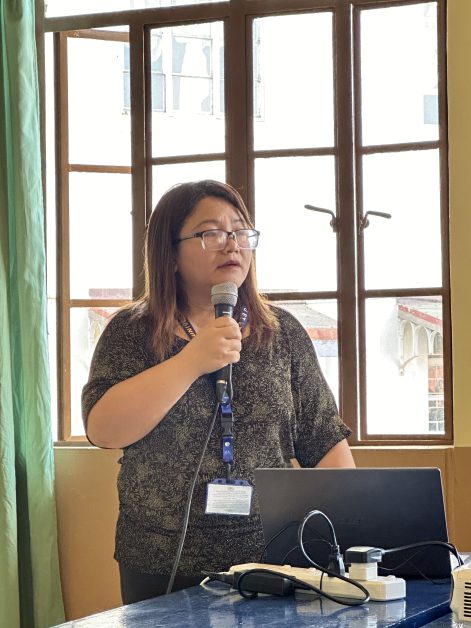
Dr. Stephenie O. Busbus, Chair of Institutional Reputation and Effectiveness Committee, and Dr. Ann P. Opiña, UIDC member and the Dean of the School of Nursing, Allied Health, and Biological Sciences (SONAHBS) discussed how to evaluate syllabi in line with the PRC Board Examination and other standards. As a result, program heads presented their outputs, reflecting their competencies in syllabi editing, enhancement, and implementation.
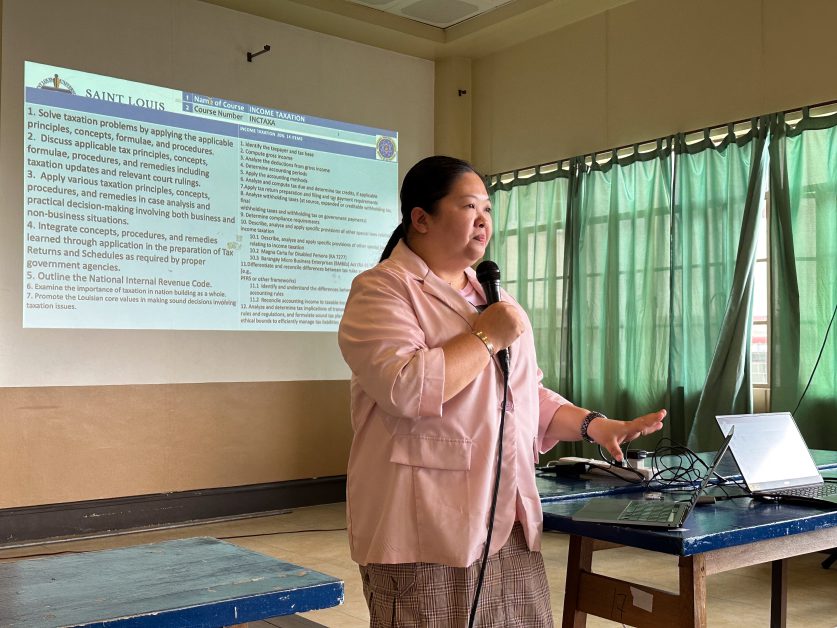
Following that, Dr. Geraldine S. Wakat, UIDC member and Chair of the Institutional and Program Assessment and Accreditation Committee, discussed “Integrating the PRC and other Language of Standards in the Syllabi.” An interdepartmental benchmarking of best practices by all academic programs then commenced.
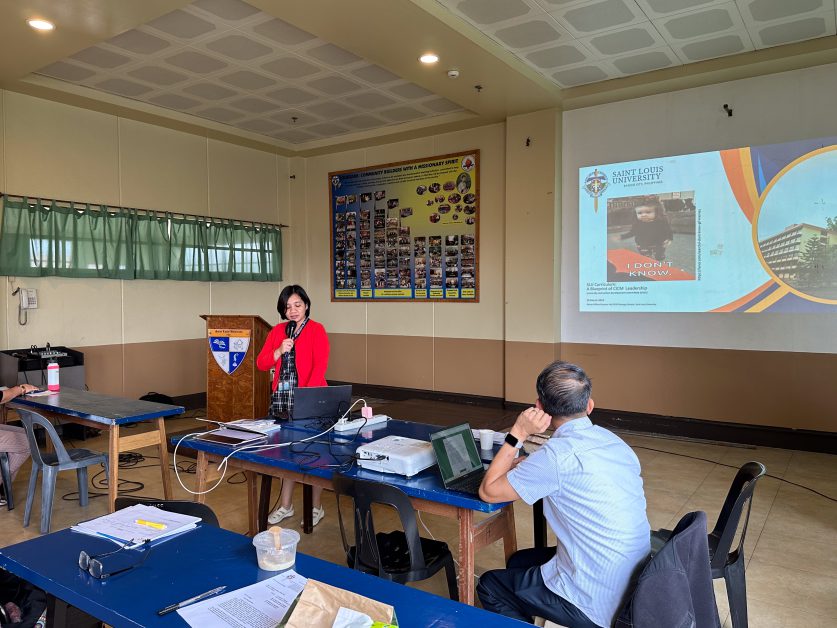
Glory I. De La Peña, the OIC of School of Accountancy, Management, Computing and Information Studies (SAMCIS), and Engr. Binwag of SEA presented best practices in extension programs and capstone projects as International Ranking entries. Dr. Faridah Kristi C. Wetherick, the Dean of the School of Advanced Studies then shared on effective research practices. On the other hand, Dean Ann P. Opiña, Atty. Jennifer N. Asuncion, and Dr. Ma. Margot Flor S. Yasay of SONAHBS; the School of Law (SOL), and the School of Medicine (SOM) detailed out best practices on Board Examination Performance. Finally, Dr. Busbus discussed Internationalization and Research practices of the School of Teaching Education and Liberal Arts (STELA).
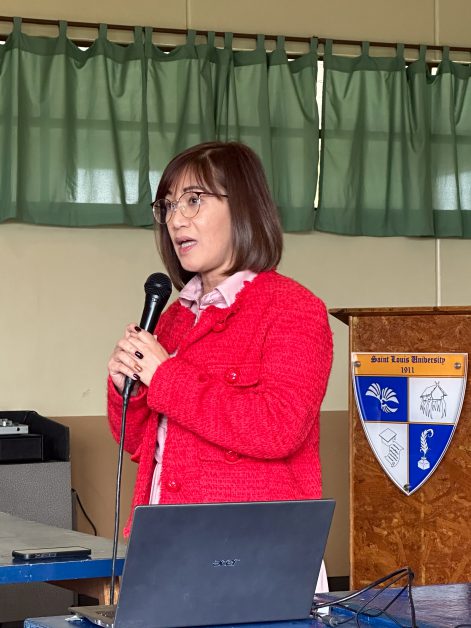
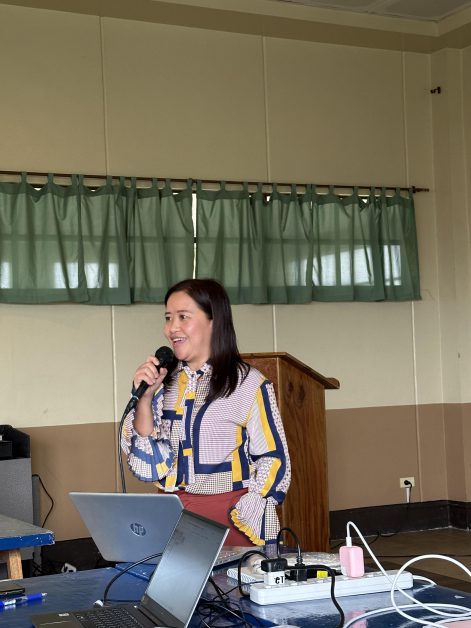
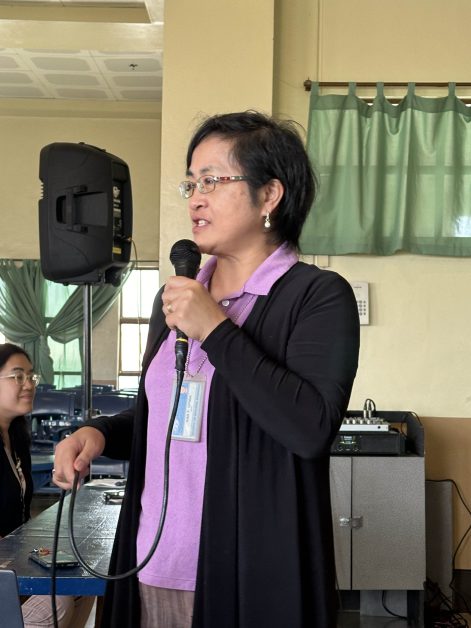
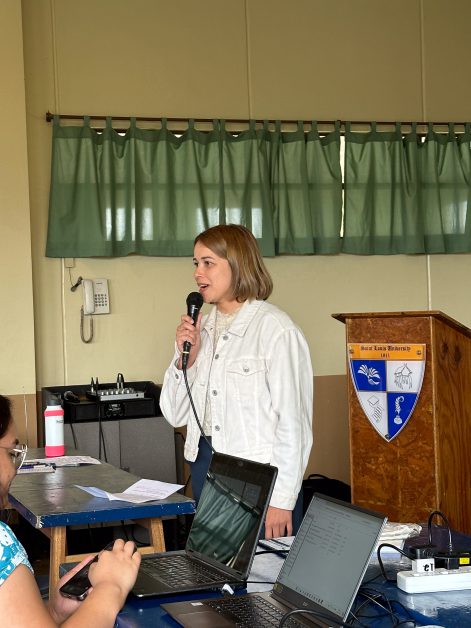
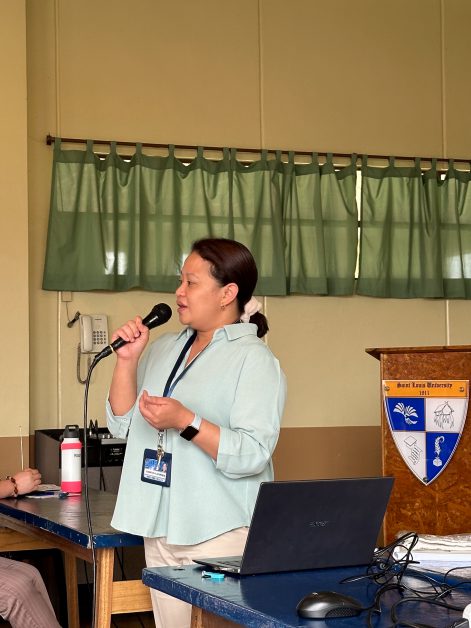
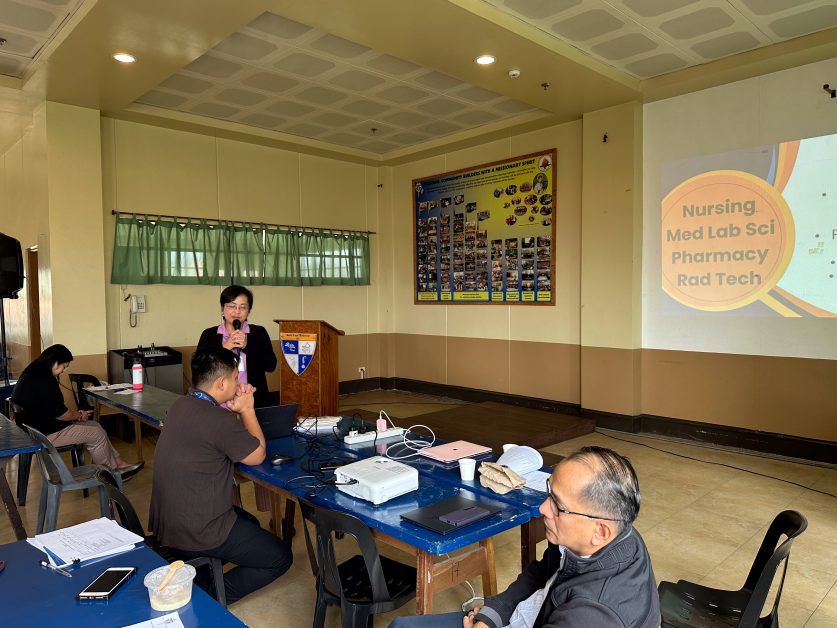
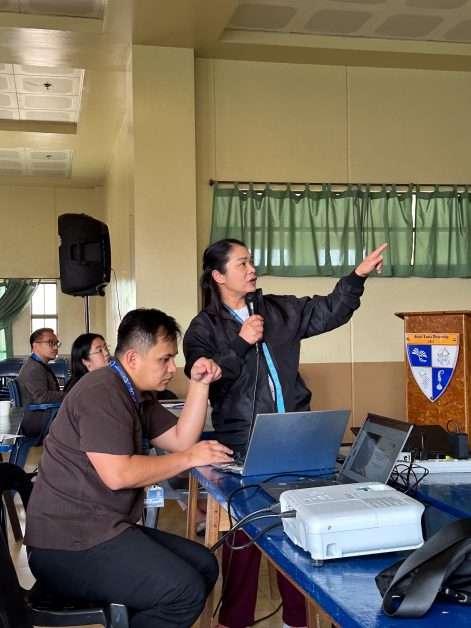
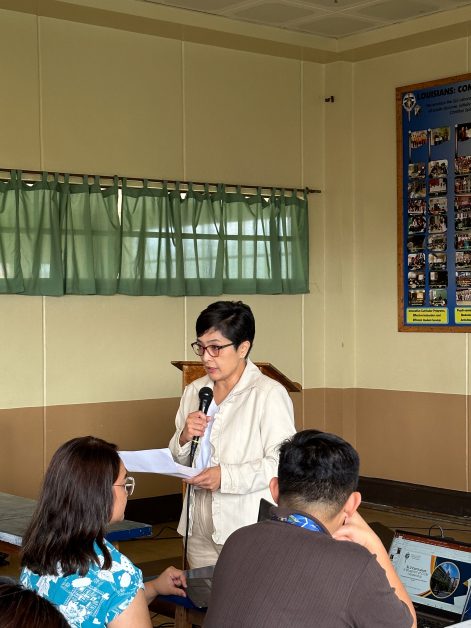
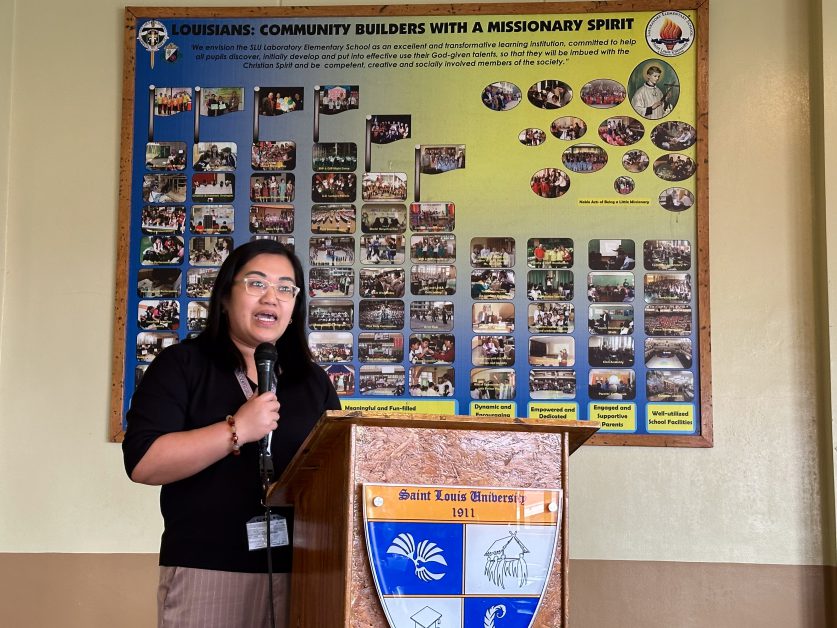
To provide the bigger picture and context of the curriculum summit program, Dr. Roberto M. Arguelles, Quality Management Head and SLU Vice President for Finance, gave a talk on Academic Program Sustainability. Here, Dr. Arguelles focused on the academic, financial, and societal impacts of SLU’s strategic directions, including aspects in social planning and implementation. He further encouraged participants to revise the program plans, enhance the enrollment and marketing programs that are aligned with the budget capacities, and create innovative strategies that will leave a lasting legacy.
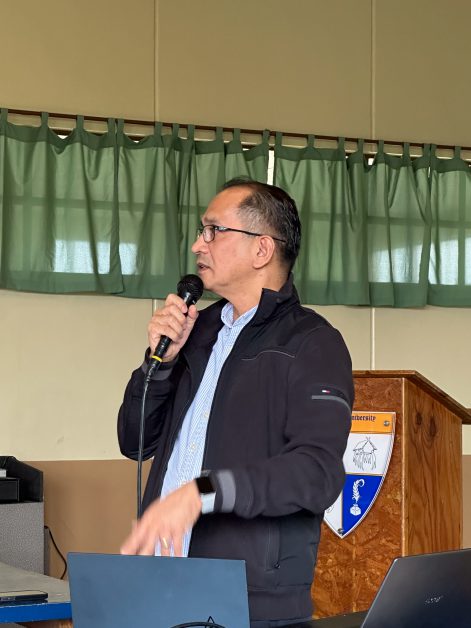
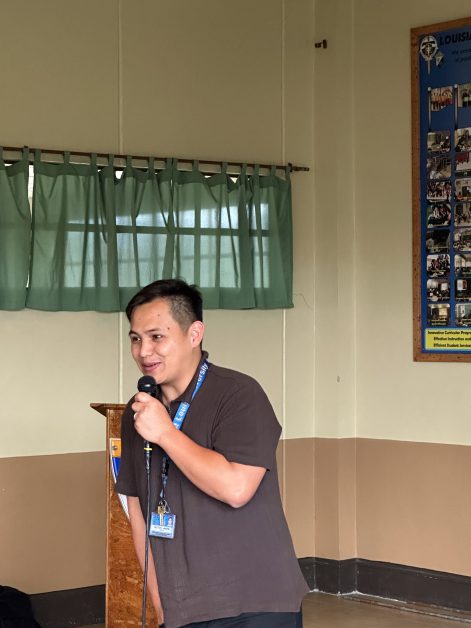
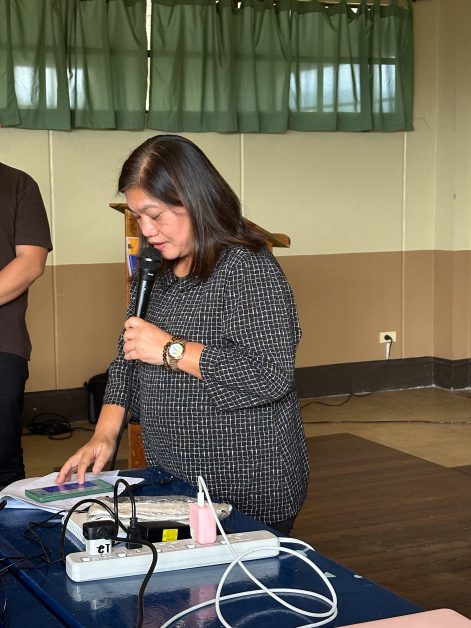
The program then closed with reminders and remarks from Mr. Hector L. Martin, Director of the Office of Institutional Development and Quality Assurance (OIDQA), followed by the closing prayer led by Dr. Cecilia Mercado, Data Protection Officer and Director of Technology Management and Development Department (TMDD).
By emphasizing school management and CICM spirituality, Rev. Fr. Gilbert B. Sales, CICM, reminds each one to work with excellence with the attitude grounded by Christ and to have that kind of intellectual growth and spirituality to actualize leadership with quality.(Riane Kenneth G. Gengania, OIDQA)
